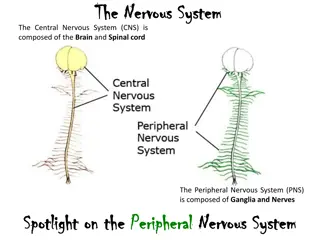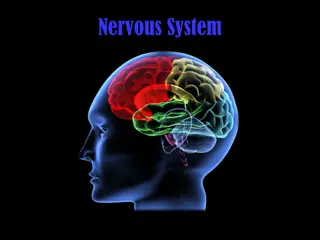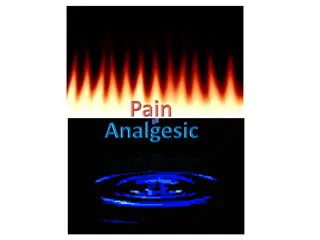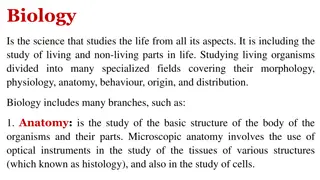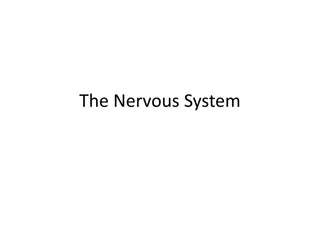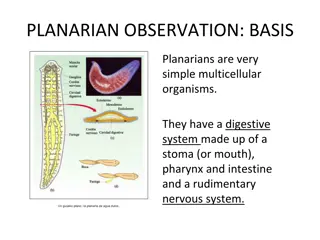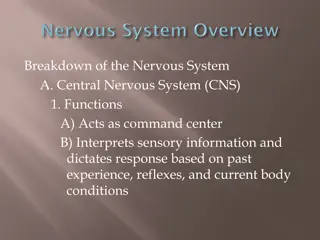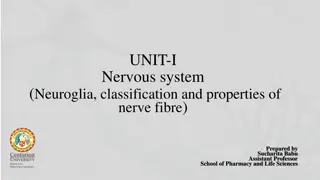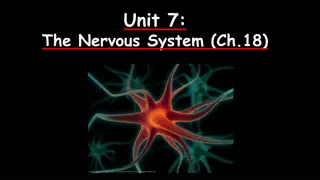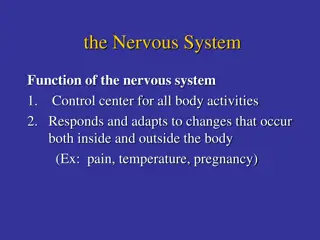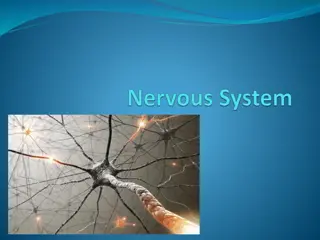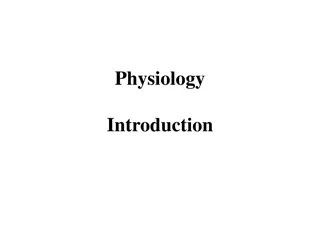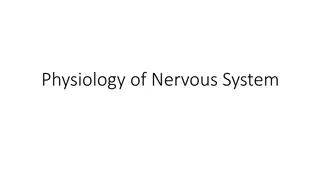Anatomy and Physiology of the Nervous System
The nervous system is a complex network responsible for sensing and responding to changes in the body's environment to maintain balance. It coordinates voluntary and involuntary activities, such as movement and digestion, ensuring proper function. Understanding its structure and functions is crucial for overall health and wellbeing.
Download Presentation

Please find below an Image/Link to download the presentation.
The content on the website is provided AS IS for your information and personal use only. It may not be sold, licensed, or shared on other websites without obtaining consent from the author.If you encounter any issues during the download, it is possible that the publisher has removed the file from their server.
You are allowed to download the files provided on this website for personal or commercial use, subject to the condition that they are used lawfully. All files are the property of their respective owners.
The content on the website is provided AS IS for your information and personal use only. It may not be sold, licensed, or shared on other websites without obtaining consent from the author.
E N D
Presentation Transcript
Nervous System Nervous System
Anatomy and Physiology The nervous system is one of the most complicated systems of the body in both structure and function. It senses physical and chemical changes in the internal and external environments, processes them, and then responds to maintain homeostasis. Voluntary and talking, and involuntary activities, such as digestion and circulation, are coordinated, regulated, and integrated by the nervous system. Anatomy and Physiology homeostasis. activities, such as walking involuntary activities, Voluntary activities


